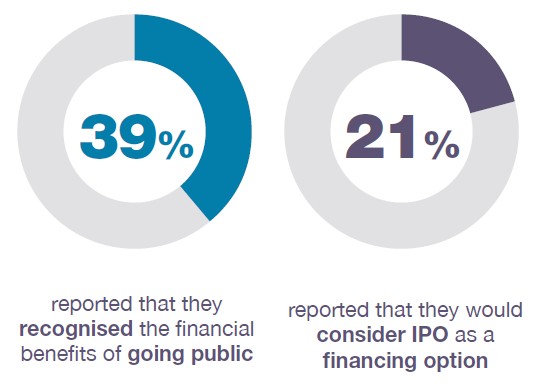Businesses, families and family businesses can benefit from creating a formal group of “owners”. They can also benefit from creating a formal “constitution”. By combining these two concepts, family businesses with an owners’ council that creates its own constitution multiply their benefits. They have a formal structure to address issues pro-actively and they have an agreed process to follow when making those decisions. Barbara Hauser, Founder of Barbara R Hauser LLC, USA, formulates the questions a family should ask itself when shaping its constitution and underlines the importance of regular family council meetings.
In the Gulf Region the importance of family businesses for the over-all economy is crucial. Estimates are that more than 95% of the region’s revenue comes from family-owned businesses. The current critical challenge is how to perpetuate those successes for the next generation. The global statistic that is widely accepted is that only six out of 100 family businesses survive to the third generation. One solution to avoid the predicted demise is to take the business public while it is still successful. The other solution is to be proactive and adopt the best possible practices to support the long-term continuation of the family-owned business.A recent study conducted by Ernst & Young at the request of the Bahrain Family Business Association found that very few of the region’s family businesses have an interest in going public. While some 39% reported that they recognised the financial benefits of going public, only 21% reported that they would consider it as a financing option. This highlights the need for effective pro-active strategies and processes.
The Owners’ Councils
In many family businesses the management style is rather informal. This works well for the founding generation members who often say that it is more important for them to spend their time growing the business than to participate in meetings. This is true even when the legal form of the business requires certain meetings.
For example, a company or corporation is required to have a Board of Directors, which is required to meet a certain number of times each year; very few family-owned businesses do this. Sometimes, while they may have named members of the Board of Directors, these Boards seldom hold formal meetings. In the cases where there is a Board that has regular meetings the Board members are usually family members, even though “best practices” suggest that there should be a minimum of three completely independent Directors. The owners are named shareholders and there is usually another legal requirement stipulating that there must be a formal shareholders’ meeting at least once a year. In practice, this seldom takes place. This means that unhappy shareholders have no opportunity to voice their complaints.
In the Gulf region many family businesses operate in the form of a general partnerships. From a legal point of view, this means that each family member has an equal vote and has the ability to veto any decision. They seldom have formal meetings with all partners. This means that unhappy partners have no possibility to voice their complaints. This has resulted in a number of lawsuits among second generation family members.
The pro-active solution is to provide a formal meeting at which everyone’s opinions can be heard and differences can be resolved. The first step towards putting the necessary systems in place is to create an active “owners’ council”. In family businesses, the word “owner” is a helpful word (better than “shareholder” or “partner”) because it reflects the emotional commitment to the business. The business belongs to the owners. Some families consider encouraging family members to think of themselves as owner to be of such great value that they even refer to the young generation members as the “future owners”.
Using the word “owner” creates an interest group that can hold regular gatherings. Many families call this an “owners’ council”. The owners’ group takes the place of having a shareholders’ meeting or a partners’ meeting. It will not matter what legal form the business has, the emphasis will be on the reality of who the actual owners (or future owners) are.
The Family Constitution
The importance of having families create their own “constitution” cannot be stressed enough. Why is this?
A constitution sets out the rules for decision-making in the group of owners. It will usually business Constitution address the following issues:
• Who are the people taking decisions?
• What kinds of decisions can they take?
• Do votes have to be unanimous or by a majority?
• What are the big issues that should be agreed on by the whole family?
• How often should the owners’ council meet?
• Where should the owners’ council meet?
• Is there a minimum number of participants required for a meeting to take place?
• Can someone assign their vote to someone else if they cannot attend the meeting?
• Should the meetings follow formal agendas and be documented in written reports?
• Should the group form different committees?
• Should the group members have limited terms?
• How are successors selected?
• How are different branches voted on; individually or collectively?
• What is the penalty for not following up on a decision?
• Should there be an ‘exit strategy’ for unhappy owners?
• Should the family sponsor annual family gatherings?
• Should a written history of the family be produced?
• Should the family have rules about using shared resources for family time?
• Should the owners formalise the donations to community charity by the business?
• Should requirements for a family member to join the family business be documented?
• How will a successor be chosen to lead the family business?
• Are there other issues that the family wants to address?
There are two additional parts of a family constitution that families are encouraged to include. The first is to begin with a “preamble” of why they are doing this and what they want to achieve with it (such as family closeness and harmony). The second part is a section at the end of the document about how the constitution can be changed at any point in the future.
The process of working out the issues surrounding a family constitution is itself very valuable. It is a “hands-on” exercise for the family to learn how to make decisions together. When they all participate in creating the rules they agree to follow, they create their own tailored governance system.
In addition, working together to agree on a family constitution provides a respectful setting to allow the senior and junior generations to raise difficult issues, and to allow siblings to ask questions of each other. One chosen successor commented that the family constitution process enabled his siblings to speak up, and that they often had ideas he had not considered.

Combining an Owners’ Council with a Constitution
If there is value in having an owners’ council and there is value in having a constitution, then there is double value if the owners’ council creates its own constitution.
From a legal point of view, if the business is a company then it will have (at least as a legally required item) articles or by-laws that address many of the governance issues. In reality, however, it is the lawyers who write the required documents and the family members seldom refer to them in detail.
If the business is a partnership then many of the governance issues would be addressed in a written partnership agreement. Many partnerships, especially in the Gulf region, do not have formally written partnership agreements.
Informal methods of decision-making work best with the founders generation. They work less well in the second generation and usually fail to work at all in the third generation. Without a formal governance system that has been created by those who are affected by it, there is often disagreement, which may lead to conflicts.
It is recommended that the owners’ council is founded and then have the owners’ council work on creating its own constitution. Many of the issues listed in the family constitution section of this article should be addressed. There are likely to be additional issues due to the nature of the particular business (corporate market strategy, forming a holding company, creating non-voting interests, adopting a succession plan, etc.). Some of the issues that seem too family focused might not be included.
As with other constitutions, an essential provision is that it should be amendable. This is very important for two reasons: The first is that conditions change, and the constitution should be flexible to adapt to a new situation. The second reason is that when the next generation joins (the family council or the owners’ council) they need to be able to make the changes they want to make, in order to feel that it is truly their constitution and not one that was handed down and imposed on them.
The value of having a formal Owners’ Council that has created its own Constitution is the best possible pro-active step to achieve the successful continuation of the family business for many generations.
Tharawat Magazine, Issue 13, 2012

















